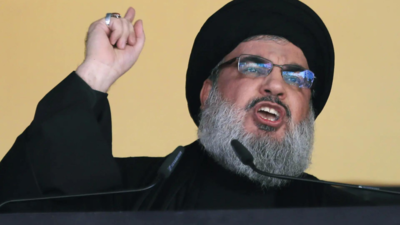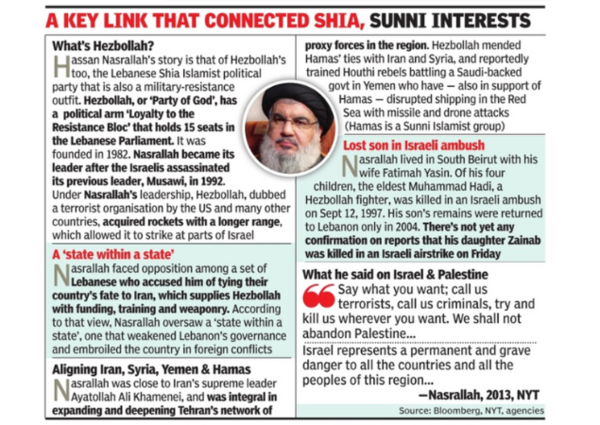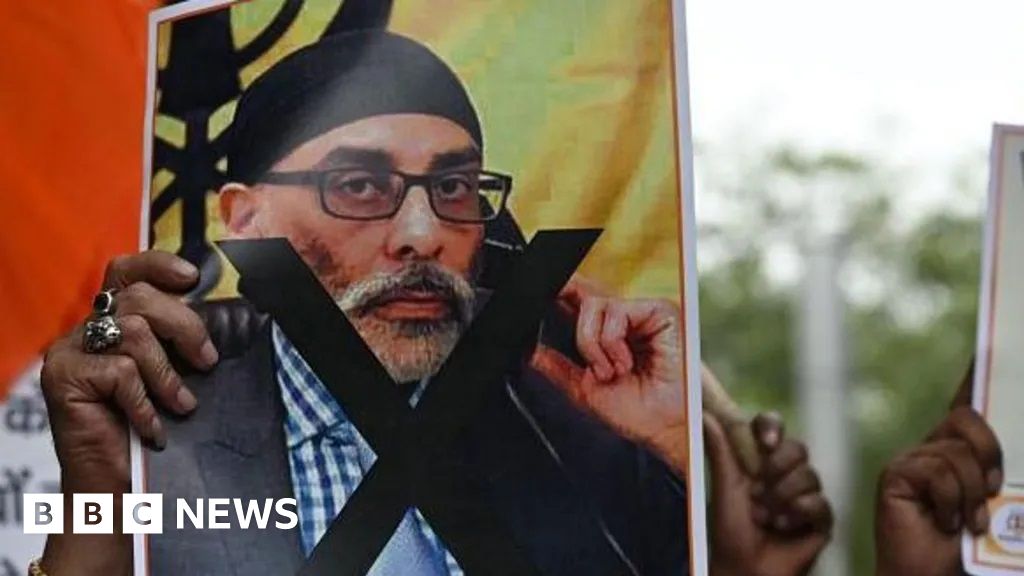
Nasrallah (File photo/AP)
For almost two decades,
Hassan Nasrallah
, the secretary-general of
Hezbollah
— who was targeted and killed in an Israeli attack Friday — had avoided public appearances out of concern that he would be assassinated. Security around Nasrallah has long been extraordinary, particularly given that an Israeli rocket incinerated his predecessor.
The beard beneath the black turban marking him as a Shi’ite Muslim cleric had turned almost white over his 32 years in charge of Hezbollah.
During that time Nasrallah, 64, built the militant group into a potent force. It has become both a political organisation that holds sway in fractured
Lebanon
and an army equipped with ballistic missiles that can threaten Tel Aviv,
Israel
.
The leader of the strongest militant group that
Iran
has helped to create in the region, Nasrallah had extended its reach well beyond Lebanon. Hezbollah fighters were instrumental in shoring up the govt of President
Bashar Assad
next door in Syria when it was threatened by a popular uprising that started in 2011. Designated as a terrorist organisation by the United States, Hezbollah has helped to train
Hamas
fighters, as well as militias in Iraq and Yemen.
Nasrallah was known, according to Arab tradition, as Abu Hadi or father of Hadi, after his eldest son, who was 18 when he died, in September 1997, in a firefight with the Israelis. Nasrallah had at least three other children. He had long called for the liberation of Jerusalem and referred to Israel as “the
Zionist entity
,” maintaining that all Jewish immigrants should return to their countries of origin and that there should be one Palestine with equality for Mus lims, Jews and Christians.
Nasrallah is believed to have lived modestly and rarely socialised outside Hezbollah’s ruling circles, eschewing public appearances and the telephone since the 2006 war against Israel. That war, which was set off when Hezbollah captured two Israeli soldiers during a cross-border raid, ended after 34 days of combat with both sides declaring victory. Afterward, Hezbollah was lauded across the Arab world, and took on an increasingly active role in conflicts around the region.
Nasrallah was a powerful orator with a robust command of classical Arabic. He laced his speeches with references to restoring lost Arab virility, a message that resonates across the region.
He came across as less dour than most Shiite clerics, partly because of his slight lisp and a propensity to crack jokes. He had never pushed hard-line Islamic rules, like veils for women. The state within a state that he helped build with Iranian and expatriate financing as Lebanon struggled to emerge from a long civil war includes hospitals, schools and other social services.

Born in 1960 in Beirut, Nasrallah grew up in a mixed neighbourhood of impoverished Christian Armenians, Druze, Palestinians and Shiites. His father had a small vegetable stand.
He studied briefly in a seminary in Qum, Iran, in 1989 and considered Iran’s 1979 Islamic Revolution to be the model for Shi’ites to end their traditional second-class status in the Muslim world.
In 1983, suicide bombing attacks against first the US Embassy in Beirut, then the barracks of American and French peacekeepers, killed at least 360 people, including 241 US service members. The murderous attacks were claimed by the Islamic Jihad Organization, considered a precursor to Hezbollah.
Hezbollah has exchanged artillery barrages with Israel since the Gaza war started, but has been hesitant to bring its full arsenal to bear, given that many Lebanese, weary of grinding economic problems and general chaos, do not want another war.

 2 weeks ago
3
2 weeks ago
3










 English (US) ·
English (US) ·